Forecasting and adapting to the family medicine workforce shortage
The Health Policy Exchange
MARCH 26, 2014
Projecting future physician workforce needs is a challenging calculation that must take multiple variables into account to avoid missing its mark. is actually experiencing a physician shortage that will worsen with population growth, the aging of the baby boomer generation, and an influx of newly insured from the Affordable Care Act.

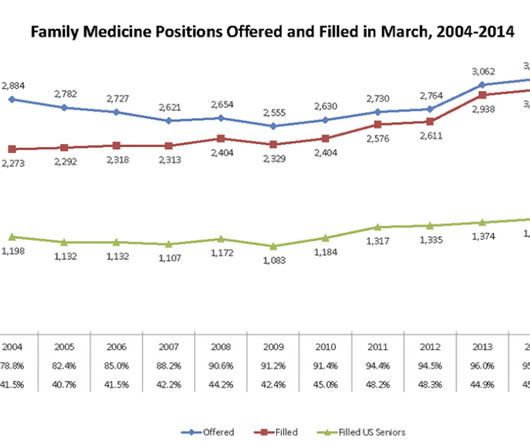
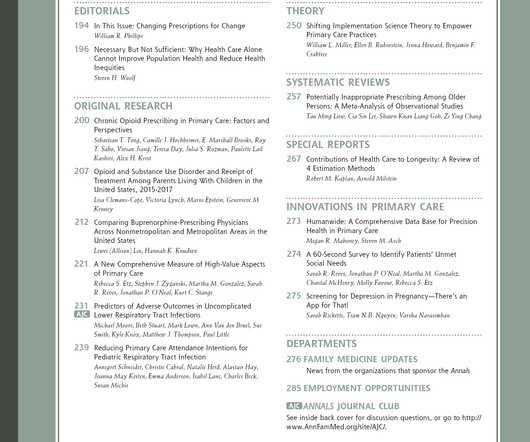
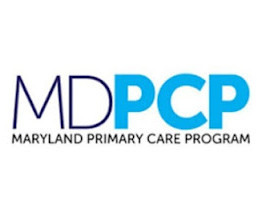
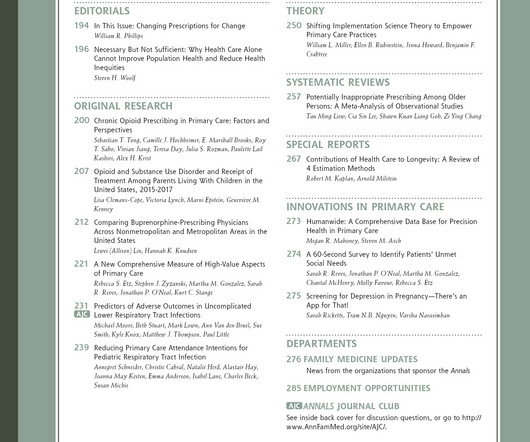
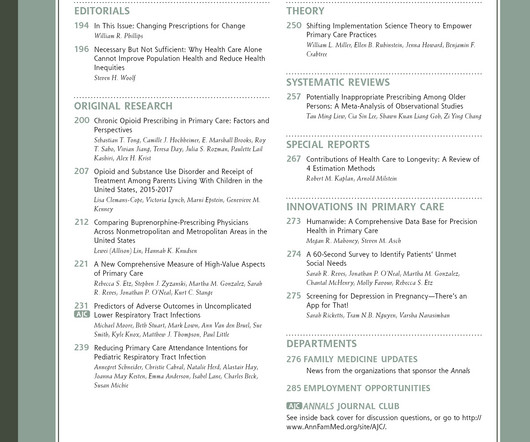

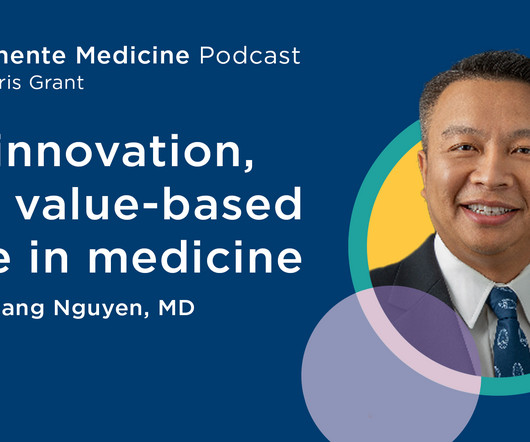



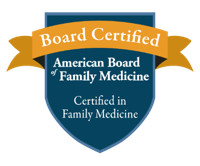






Let's personalize your content